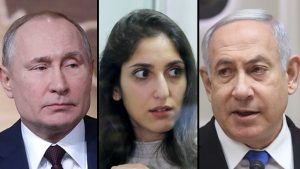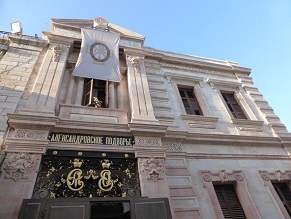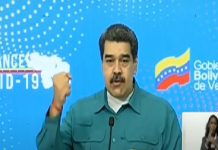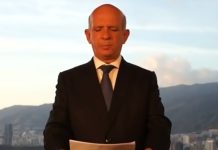I was originally going to write a story about the push for marijuana reforms in Russia. But the reality is that there is not much to say. Despite pushing amnesty through the State Duma for Guf, a “rapper who had spent seven months in prison for marijuana possession,” according to the website Russia Beyond, Russia is not interested in liberalizing their marijuana laws, because Vladimir Putin, Russia’s president until at least 2024, is not interested in pursuing this path. And in Russia, Putin typically gets his way.
The Russian Criminal Code
Currently, under the Russian Criminal Code, possession of up to 6 grams of cannabis is considered administrative, which can result in a 5000 ruble (roughly $70 USD) fine or 15 days imprisonment. However, criminal offenses for anything above that amount carry more stringent punishments, including one of the following:
- up to a 40,000 ruble ($550 USD) fine
- garnishing of income to that amount
- 480 hours of compulsory work
- corrective labor for a term of up to two years
- restriction of liberty for a term of up to three years
- deprivation of liberty for the same term
And Russian health officials make no bones about it, either. Russian Deputy Health Minister Dmitriy Kostennikov went on record saying, “We do not see such an opportunity for Russia, On one hand, smoking marijuana is not so widespread in Russia as it is in the United States.
On the other hand, the harm which this drug causes is evident. In spite of the fact that it’s presented as a ‘light’ drug, it proves to be the first step on the way to harder drugs, and nurtures and fuels the drug culture.”
Russia and Marijuana: The Darker Reality
The darker reality is how Russia (ie. Putin) uses marijuana laws to control the public, grease the wheels of police corruption, and manipulate politics to promote Russia’s international interests. As reported by CBD Magnates, Maskim Malishev, the organizer of an NGO that’s attempting to modify Russia’s drug laws, “individuals are continuously grumbling that law enforcement officer(s) either plant drugs or increase the amount of drugs in their reports to prosecute the culprits under criminal law. The officers utilize these techniques to shake down the culprits and encourage them to use kickbacks.”
A recent report by The Moscow Times is a prime example of how the Russian State sets its citizens up. According to Pjotr Sauer, a writer for The Russian Times, a 19-year-old gay man (Denis) asked who he thought was his Tinder date to bring a little marijuana to relax him. When Denis got to the address of his supposed date,“[i]t turned out to be a set up, and the guy I was talking to on Tinder was a cop,” Denis told The Moscow Times. Sauer states that “the police presented him with a choice — pay a bribe or face being charged under the notorious Article 228 for drug-related crimes.”
And then there is the use of marijuana as a weapon on the political stage. As the Washington Examiner reported, in April 2019, 26-year Naama Issachar, a dual Israeli-United States citizen, was arrested for marijuana possession in a Russian airport in transit, while traveling from India to Israel. Issachar had a layover in Moscow, where her checked bag was searched by authorities and approximately 10 grams of mrijuana were reportedly discovered.
As pointed out by The Washington Examiner, “Issachar denied the charges and said she never wished to enter the country at all, pointing out that she was only in the airport to change flights and didn’t have access to the bag where the drugs were found.” In a Fox News interview, Issachar’s sister, Liad Gold, stated that “Issachar said she accidentally left the cannabis in her bag,” and was not intentionally trying to smuggle it into Russia.

Regardless, Issachar was initially charged with cannabis possession, but the charge was upgraded in May to smuggling drugs into Russia, and she was sentenced by Russia to 7.5 years in prison. Keep in mind that Issachar had only 10 grams of cannabis, which is less than ⅓ of an ounce. While this does enter the sphere of a “criminal offense” under Russian code, the suggested maximum is restriction or deprivation of liberty up to three years, not more than double that time.
Fortunately for Issachar, her petitions, in conjunction with pleas from her mother and protests here in the United States, led Putin to offer a pardon for offense. Ekaterina Semyonova, deputy spokesperson for Russia’s Pardon commission said, “We received Naama’s plea for pardon today. She [Naama Issachar] partially admits her guilt. But she pleads not guilty on smuggling charges. She had no such malicious intent. Hence, after considering her character reference from the prison, which is positive, the commission took a decision to satisfy this plea for pardon.”

However, this was ultimately an elaborate ploy by Putin to win political points. In order to gain political leverage over Israel, Putin used Issachar’s release as a high-stakes diplomatic poker chip by asking that Aleksey Burkov, a Russian IT specialist extradited from Israel to the United States on charges of hacking and credit card fraud, be freed and released back to Russia. Unfortunately for the Russian president, Israel, led by then Prime Minister Benjamin Netanyahu, wasn’t playing any Putin reindeer games.
According to the publication, The Times of Israel, an “Israeli official said Issachar’s release was the result of a Russian goodwill gesture toward the United States, stressing that Israel did not give Moscow anything in return,” adding, “There was no deal with Russia. Naama’s

release was done as a gesture by President Putin to the US,” the official stated. Burkov was eventually extradited to the United States to serve a prison sentence.
Undeterred, Putin opted for another stratagem, seeking to reclaim possession of Alexander Courtyard in Jerusalem’s Old City, as reported by TASS, The Russian News Agency. Interestingly, CNN reported that the property “. . . had been subject of years-long legal dispute between two Russian organizations until Israel’s Justice Ministry decided it belonged to the one more closely tied to the Kremlin.” I guess politics does make for strange bedfellows, especially when one of the bedfellows attempts to use his country’s marijuana laws to curry political favors while simultaneously projecting himself as a man of rational mercy.
At Newsweed.com, we adhere to three simple principles: truth, balance, and relatability. Our articles, podcasts, and videos strive to present content in an accurate, fair, yet compelling and timely manner. We avoid pushing personal or ideological agendas because our only agenda is creating quality content for our audience, whom we are here to serve. That is why our motto is ”Rolling with the times, straining for the truth.”
Your opinion matters. Please share your thoughts in our survey so that Newsweed can better serve you.
Charles Bukowski, the Los Angeles beat poet that captured the depravity of American urban life once said, “There is something about writing poetry that brings a man close to the cliff’s edge.” Newsweed is proud to stand in solidarity and offer you a chance to get close to the cliff’s edge with our first Power of Poetry Contest. Are you a budding bard, a versatile versifier, a rhyming regaler? Do you march to the beat of iambic pentameter, or flow like a river with free verse? If so, here’s your opportunity to put your mad poetic chops to the test. Enter our poetry contest for bragging rights and an opportunity to win some cash!






